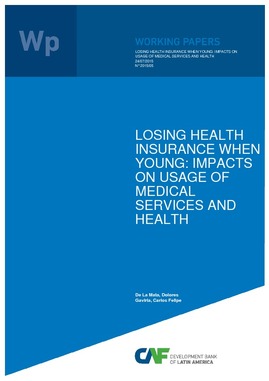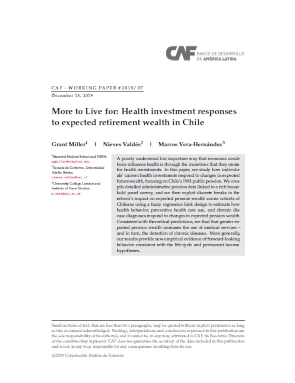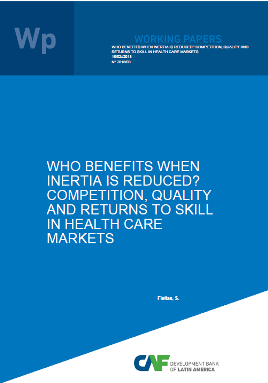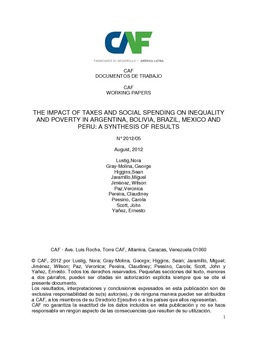Losing health insurance when young: Impacts on usage of medical services and health
Resumen
In this study we exploit a regulation in Colombia that exogenously changes health insurance coverage of young adult dependents, specifically those turning 18 years old, to analyze the effects of losing health insurance coverage on their health service usage and health status. We assess this effect using a regression discontinuity design (RDD) and data from the Encuesta Nacional de Calidad de Vida for Colombia from 2010 to 2013. Losing coverage implies an increase in the cost of some medical services which may reduce their consumption (i.e. preventive services). Additionally, since under Colombian regulations, emergency department (ED) visits cannot be denied to anyone, regardless of health insurance status, uninsured young adults tend to use this service more instead of regular medical services (such as preventive healthcare or visits to physicians or specialists). We find, consistent with the change in relative prices, that losing health insurance when turning 18 years old increases the visits to the ED, reduces preventive care visits with a physician, and reduces the usage of other medical services. These results imply a substitution of cheaper medical services for more expensive ones when individuals turn 18 years old in Colombia.
Materia
País / Región
Fecha
2015-04Citar de esta publicación
Item perteneciente a la Colección

Items Relacionados
More to Live for: Health Investment Responses to Expected Retirement Wealth in Chile
A poorly understood but important way that economic conditions influence health is through the incentives that they create for health investments. In ...
Who benefits when inertia is reduced? Competition, quality and returns to skill in health care markets
Increased competition may lead to incentives for firms to increase quality by incorporating higher quality inputs. This is particularly relevant in ...
The impact of taxes and social spending on inequality and poverty in Argentina, Bolivia, Brazil, Mexico and Peru: a synthesis of results
We apply a standard tax and benefit incidence analysis to estimate the impact on inequality and poverty of direct taxes, indirect taxes and subsidies, ...





